TIDBITS
ARTICLES

WOMEN AND SAVING FOR RETIREMENT – WHY IT'S HARDER FOR THEM
Retirement planning is important for everyone, but women, in particular, face unique challenges when it comes to saving for retirement. Studies show that women tend to live longer than men and may take time off from work to care for children or aging parents, which can impact their retirement savings.

TOP 10 BIGGEST DO'S AND DON'TS OF SPECIAL NEEDS PLANNING
You obviously want a bright, fulfilling future for your loved one. So let’s dive into the top 10 biggest do's and don'ts that will help you navigate the world of Special Needs Planning.

MANAGING THE TAX IMPACT OF YOUR DEFERRED COMPENSATION PAYOUT?
Non-Qualified Deferred Compensation Plans (NQDCs) are an excellent way for executives to defer some of their salary and bonuses into retirement, deferring the tax liability until they receive the payout. However, as the executive approaches retirement, or key payout dates, it's essential to understand how to manage the tax impact of the payout.
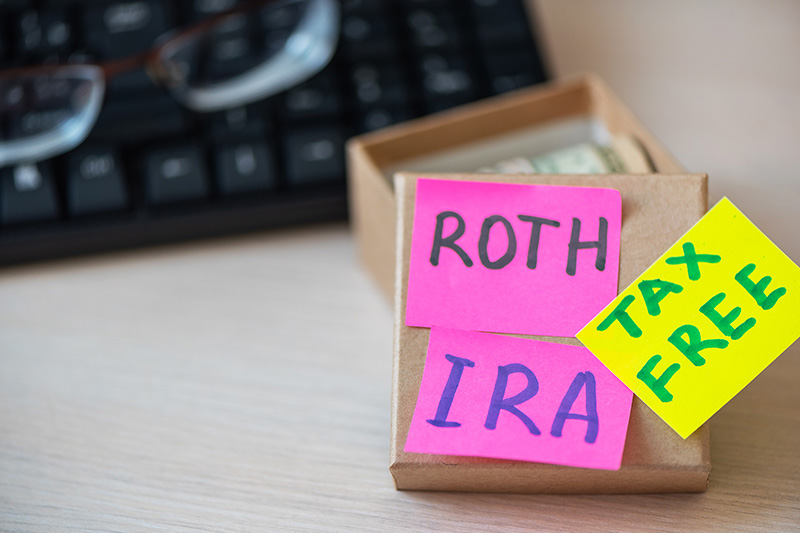
ROTH IRAS: WHY YOU MIGHT NEED TO CONVERT
Before we dive into ROTHs, I want to set the stage for why these are probably some of the most important tools in finance we have today. Most of us know that our government has a spending problem. I would liken it to a kid's spending spree in a candy store, with no intention of paying the bill. According to the US Debt clock, our national debt is nearing the $32 trillion dollar mark.

WHAT ELSE IS LIFE INSURANCE GOOD FOR?
Do you own life insurance? Should you own life insurance? If there's a reason to have coverage to protect liabilities in the event of your death, have you ever looked at life insurance as a tremendous tool to build wealth, and in some cases be even better than many retirement accounts that are available?

5 AREAS OF A FINANCIAL TUNE-UP
Have you ever had the thought, “am I missing things” when it comes to your finances? This is a common question, or at least underlines a common theme behind the genesis of many of my financial planning client relationships.

DEFERRED COMP RETENTION PLANS
In any organization, leadership and talent continuity are essential to maintaining the growth and value of the company. Current times have made it very easy for top talent to leave. Everything from social media to recruiting companies are targeting your top people.

4 BIGGEST MISTAKE INVESTORS MAKE WHEN INVESTING THEIR MONEY FOR FUTURE RETIREMENT
Do you own life insurance? Should you own life insurance? If there's a reason to have coverage to protect liabilities in the event of your death, have you ever looked at life insurance as a tremendous tool to build wealth, and in some cases be even better than many retirement accounts that are available?

QUESTIONS TO HELP YOU TIGHTEN UP YOUR RETIREMENT PLAN
In our Second Opinion Service we ask a lot of questions in what we would typically call a ‘Discovery Meeting.’ These questions focus on getting the attitude and thoughts and feelings of our clients, along with collecting the hard facts on financial statements, investment reports, etc.
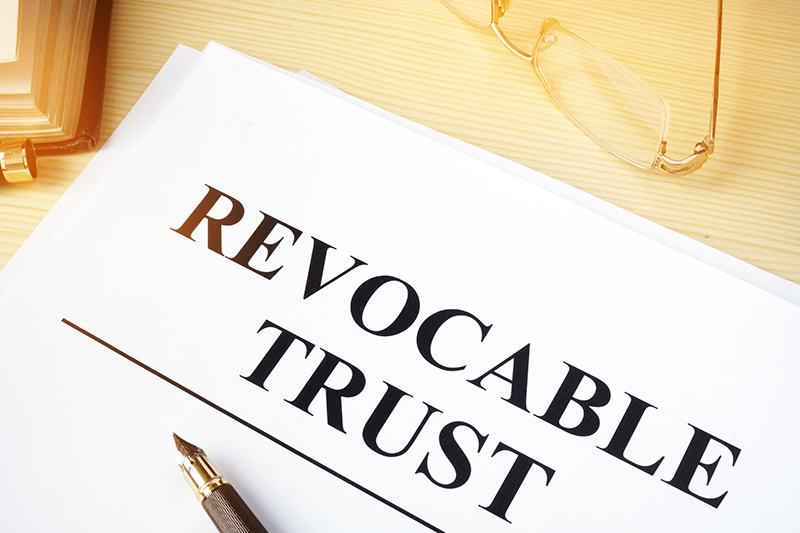
WHY YOU MIGHT NEED A REVOCABLE TRUST
A revocable trust is a legal document that allows you to manage your assets during your lifetime, and it can help ensure that those assets go where you want them after your death. When you create a revocable trust, it’s important to understand what the document does and why it’s beneficial for people in certain circumstances. Let’s look at some potential reasons why you might want to set up one.

SOCIAL SECURITY AND DIVORCE: WHAT YOU NEED TO KNOW
Divorce can be a difficult and stressful time, and navigating the complexities of Social Security benefits can make it even more overwhelming. However, if you were married to a spouse who earned a higher income, there may be a way to increase your Social Security benefits. We’ll explore how divorced spouses can claim Social Security benefits from an ex-husband’s or ex-wife’s Social Security benefit.

Tips for Teaching Kids About Money
Teaching your kids about money and how to invest is an important part of their financial education. It’s never too early to start; in fact, if you wait until they’re adults, it might be too late. Here’s how to teach your children about investing and finances so that they can develop good money-management skills from an early age.

WAITING TO CLAIM SOCIAL SECURITY, CAN IT BOOST YOUR INCOME?
A recent paper published by the National Bureau of Economic Research, titled “How Much Lifetime Social Security Benefits Are Americans Leaving on the Table,” really gives us another thought on how to collect benefits, or for that matter, waiting to collect benefits.

5 TIPS FOR STARTING (& RUNNING) A SIDE BUSINESS
This article covers a few best practices when running a side business. Sure, sometimes these side businesses turn into full time businesses, but that doesn’t mean the foundations and be practices won’t apply. It pays to start implementing these strategies early so that you build a go foundation for your business. These strategies will namely apply to non-MLM businesses where you a either taking payment directly, or in many cases receiving a 1099 for services rendered.

BENEFICIARIES: TIPS & TROUBLES
When it comes to naming beneficiaries on your various accounts, there are some important things to pay attention to. I’ve certainly witnessed some pitfalls - unwanted surprises from heirs when what they thought was going to happen after their loved ones passed away was suddenly very different from their expectations. In my experience, 401k plan accounts seem to be the most often overlooked account that has consistently ended up with the wrong, or no, beneficiary listed. Two circumstances come to mind that end up most damaging to heirs:

WHAT'S AN ANNUITY
When it comes to various instruments you can put money into, at some point you may be exposed to the prospect of putting some money into an annuity. But what exactly is an annuity?

SOCIAL SECURITY BENEFITS ARE LOSING BUYING POWERS
Where does that leave you? Have you had your Social Security benefits verified lately? Are you getting close to where that might become important? If you’re getting closer to eligibility, realize that there are a few things to consider before you would collect Social Security.

WHY CONSIDER A ‘SECOND-TO-DIE’ POLICY
In my 34+ years of providing financial services, one of our strategic plans to pass wealth down is the use of life insurance. I know that shouldn’t be a surprise to many of you. One dollar buys hundreds of dollars of death benefits, so it’s very leverageable. Also, life insurance proceeds, if structured correctly, are payable totally tax-free to the named beneficiaries, and could be unencumbered by any creditor. It can be a wonderful tool to create legacy estate equalization. For example, if one child inherits a business, the other child inherits cash. In another situation, it could also be used to create liquidity to pay taxes to the federal government and keep the entire estate intact, such as land and business and buildings for heirs.

GUARANTEED INCOME: IS THERE REALLY SUCH A THING?
There comes a point in many a client’s financial plan that requires them to rely on the savings they’ve accu- mulated to now support their income needs. This may be because of a retirement or that they’ve started to scale back in their working hours. In any case there are a few sources of income most retirees rely on to meet their income needs in retirement.

THREE OVERLOOKED PROTECTION RISKS PLAGUING SMALL USINESS OWNERS
Let’s look at three main areas of insurance and protection planning that are often overlooked by small business owners.

SOCIAL SECURITY CONSIDERATIONS
Did you know that your life expectancy may be increasing beyond the break-even age for Social Security income?

SHOULD I CONTRIBUTE TO ROTH 401K
First things first... what is a ROTH 401k? Technically, its not a type of 401k, rather it’s a designated ROTH account within many 401k plans offered by employers. Not every employer’s 401k plan has a ROTH designated account. However, this is an easy addition for the employer -- often it’s a simple change to the plan documents and a matter of turning on the feature on the investment website. The ROTH side treats your contribution differently. You realize the income on your taxes today, but all your contributions and earnings, if withdrawn after age 59 ½, are tax-free.

UNEARNED INCOME
ARE YOU PAYING MORE TAXES THAN YOU NEED TO? Answer: Maybe? I’ll give you an example, let’s say you have a non-retirement account such as an individual or joint account invested in the market or somewhere that has generated growth and a return on your investment. When going to file and prepare an income tax return, in typical fashion you collect all of your tax documents from all your various accounts and take these to a tax preparer to prepare and file your taxes. In the end, you may have a refund or you may be paying into the Treasury for an underpayment of taxes.
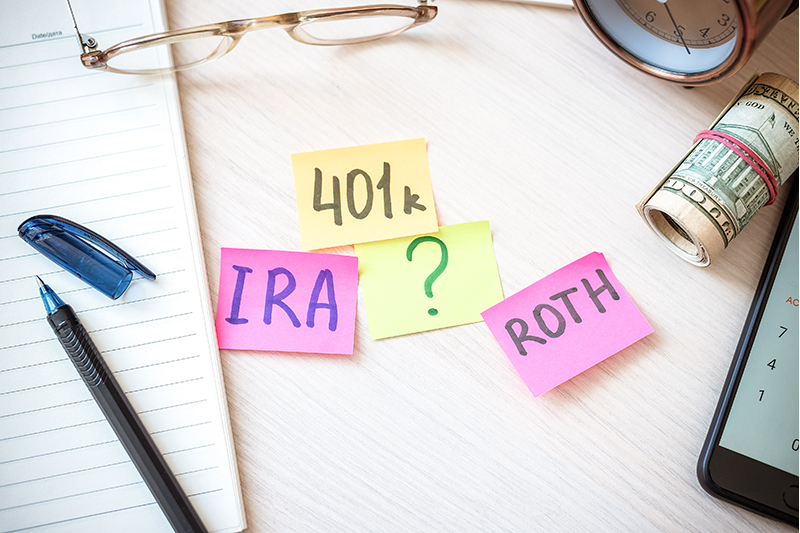
RETIRING? WHICH ACCOUNT DO YOU DRAW FROM FIRST?
When it comes time to retire, which of your investments should you draw from first? I must admit that this question is a bit of a teaser, in that the answer is, “it depends.” What would be more helpful is to ask yourself a series of questions to determine how best to structure your retirement plan so that it fits your personal preferences. This will ultimately answer where your money comes from to fund your retirement lifestyle.

LIFE TRANSITIONS: PREPARING FOR CHILD TO LEAVE HOME
Children leaving home can be a very emotional and challenging time for parents as they navigate the transition from a full and busy home to one that’s less so. This time of life can also lead to a feeling of lacking purpose with an emptiness that coincides with the empty nest. Aside from the basic advice of realizing this transition for what it is -- that parent and child relationships change over time -- and to look to the relationship that you can have now despite these changes, I realize I’m no psychologist.
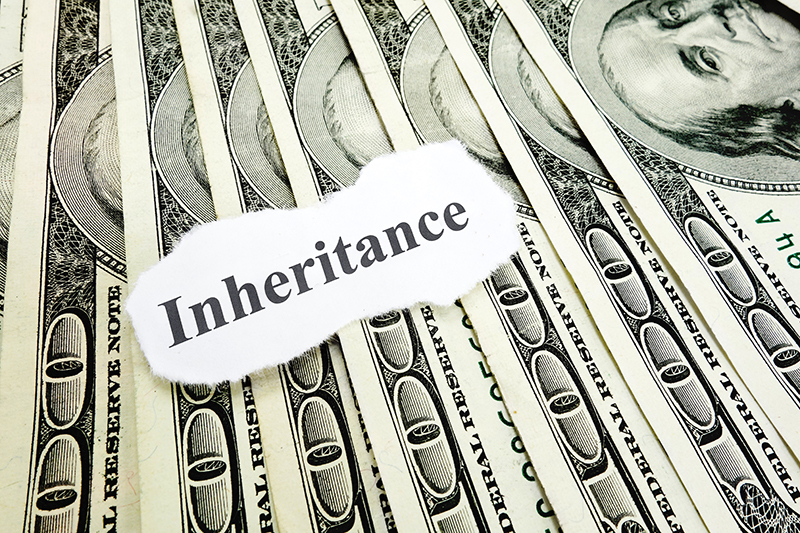
WHAT TO DO WITH INHERITANCE
This is a highly personal question, and thus, the answer is not black or white. So let’s first consider the motive rather than the method. Your motive should be to improve your financial condition. With this in mind, we ask, “what is the best way to improve my financial condition?”
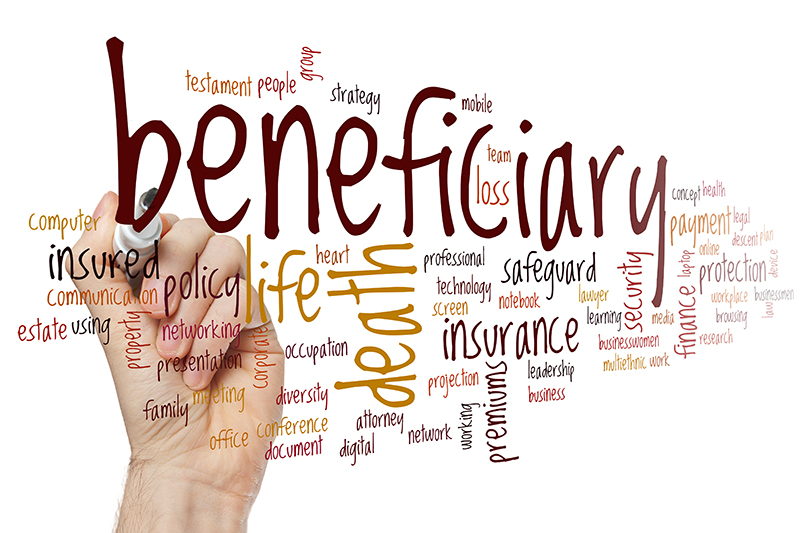
IS YOUR LIFE INSURANCE TUNED UP?
3 QUESTIONS TO ASK YOURSELF There are many questions when it comes to evaluating and creating an effective insurance plan. Here’s a look at three common areas of discussion when it comes to your life insurance planning.

DIVORCED? NOW WHAT?
5 CONSIDERATIONS FOR YOUR FINANCIAL PLANS Not only can getting a divorce be a stressful and emotional experience, but most often is also viewed as a damaging financial experience. Here are a few considerations to help you move forward in confidence while ensuring you have control over your new financial future.

TOUGH CONVERSATIONS
ARE YOU AND YOUR SPOUSE (OR YOU AND YOUR FINANCIAL ADVISER, FOR THAT MATTER) ON THE SAME PAGE, FINANCIALLY SPEAKING? I CHALLENGE YOU TO HAVE THAT “TOUGH” CONVERSATION. Are we asking the right questions? It’s certainly one thing to discuss your goals and what you’d like to have happen in the future, but what about all those other important feelings and issues left unsaid.

HOW TO ALLOCATE YOUR 401(K) OR OTHER COMPANY-SPONSORED RETIREMENT PLAN DOLLARS
As a Financial Adviser, I often get asked by clients how they should be allocating their retirement dollars inside their company retirement plan. This is a tough area to tackle for any financial adviser because of the rules surrounding providing advice on 401(k)s and other retirement dollars. Generally, advisers are prohibited in providing advice on such matters. We can, however, provide information that helps the the participant to make their decisions.

HOW TO TRANSFER FROM A COMPANY-SPONSORED RETIREMENT
When it comes to organizing your balance sheet and simplifying your accounts when a life change occurs (ex. retiring or changing jobs,) there are a few processes to review in order to achieve a smooth transition. In this article, we will address the most common steps in combining or moving your retirement account (often 401(k)) to your own self-directed IRA.
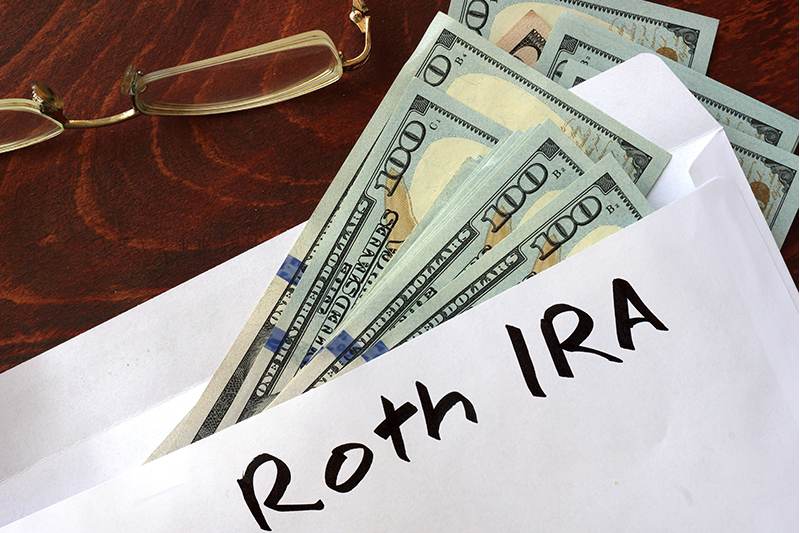
A ROTH IRA FOR RETIREMENT SAVINGS
For many of us, we may have heard of a ROTH IRA, but sometimes there is confusion on its various uses. Traditionally speaking, a ROTH IRA is an account with special tax treatment that allows the investor to defer taxes on gains in the account, and if over age 59 ½, withdraw the gains tax free (there is a 5 year requirement on the account before withdrawing gains tax-free.) These traditional accounts are often used to support retirement savings goals. The retirement focus here being largely because of the early withdrawal penalties on the gains in the account if the owner is not yet over age 59 ½. Although these early withdrawal rules are the same as a Traditional IRA (another tax advantaged account where the owner gets a tax deduction on contributions in the year of contribution and then pays the tax later on withdrawals from the account). The difference is that with a ROTH IRA, you can withdraw your principal contributions early without penalty after the five year holding period has been satisfied.
FINANCIAL STRATEGIES TAILORED FOR SMALL BUSINESS OWNERS
HELPING YOU PROTECT YOUR BUSINESS, PLAN FOR GROWTH, AND SECURE YOUR FUTURE. CONTACT US TO GET STARTED!
LOCATIONS
NEW HOLSTEIN
1411 MILWAUKEE DRIVE
NEW HOLSTEIN, WI 53061
DE PERE
1251 SCHEURING RD, SUITE C
DE PERE, WI 54115
COTTAGE GROVE
202 W COTTAGE GROVE RD, SUITE C
COTTAGE GROVE, WI 53527
